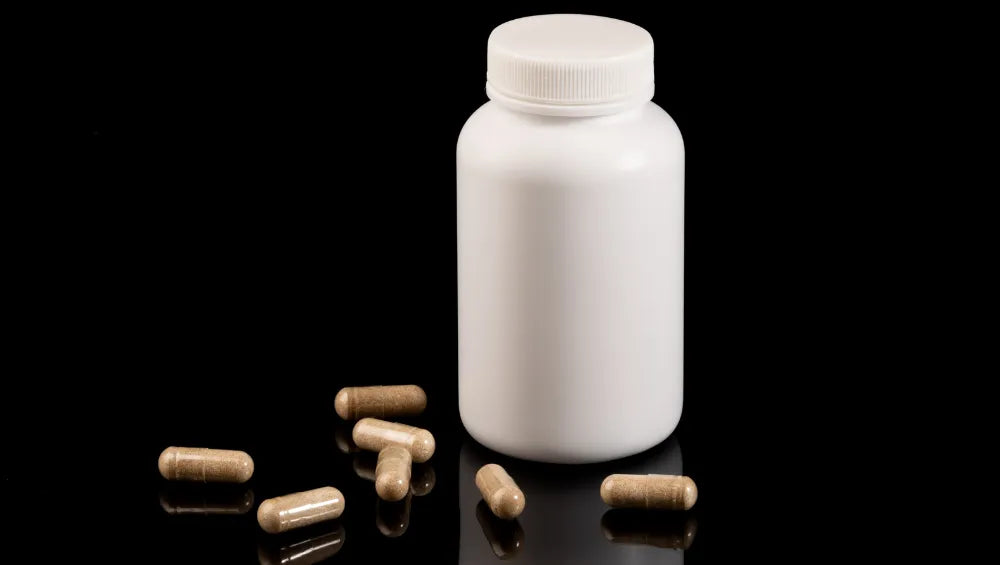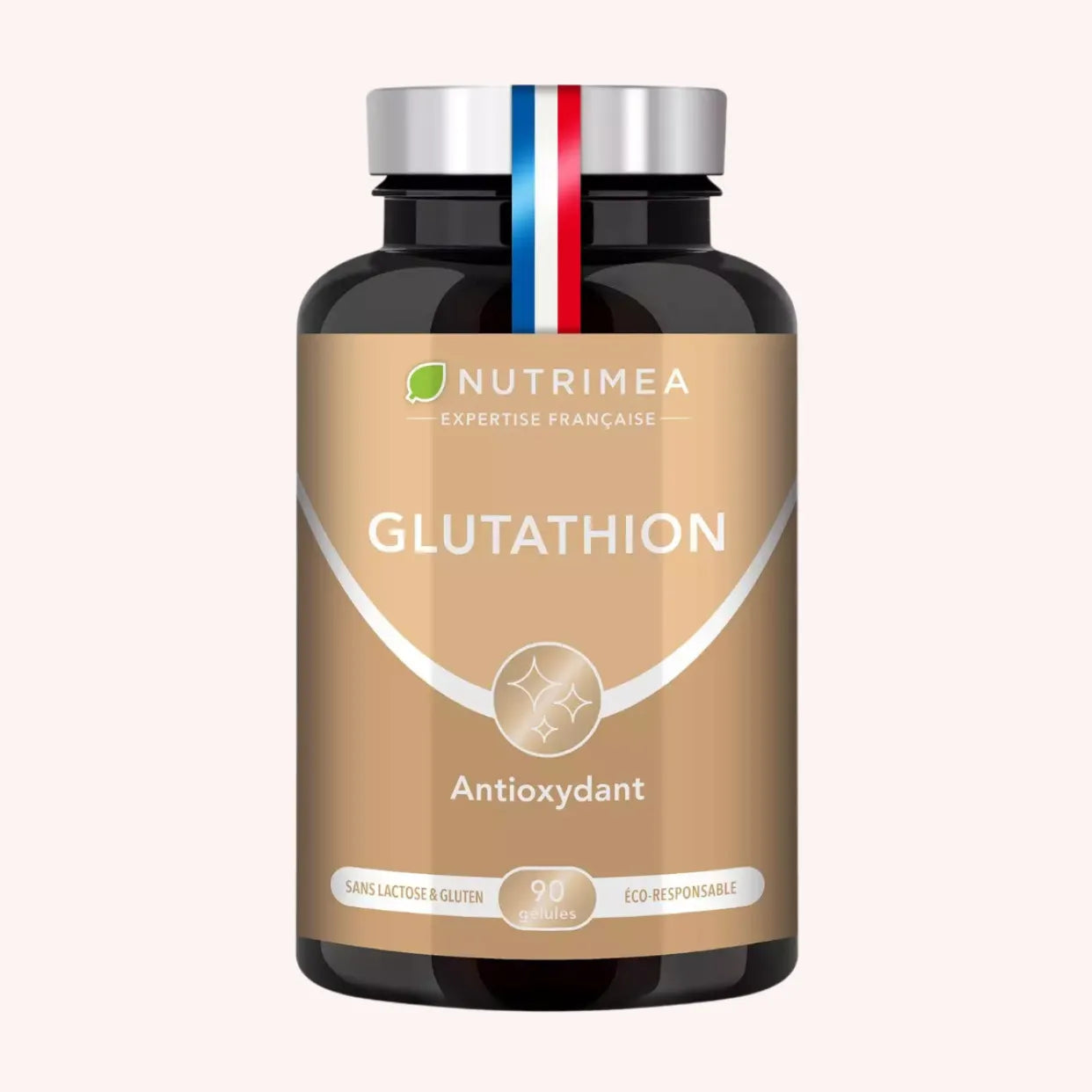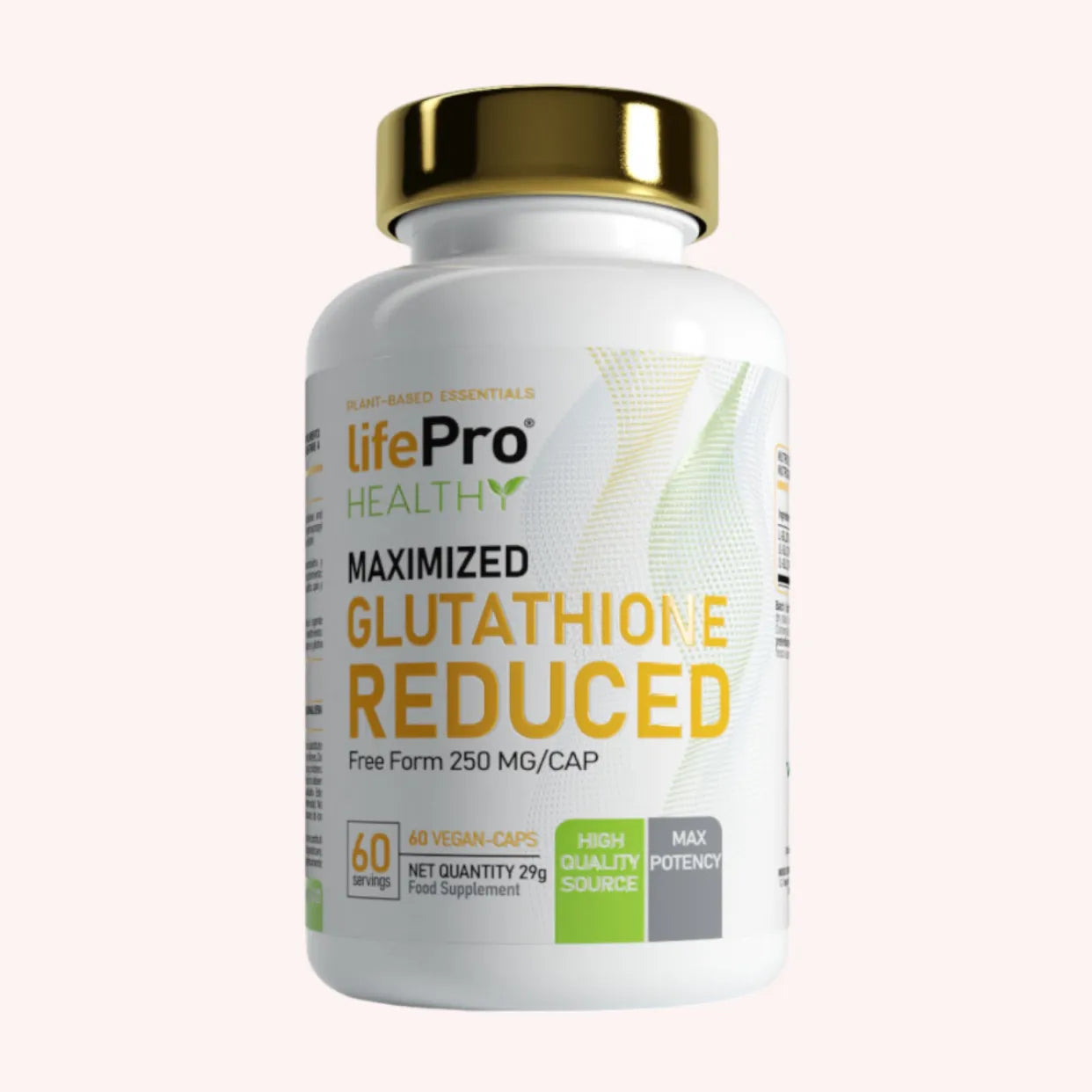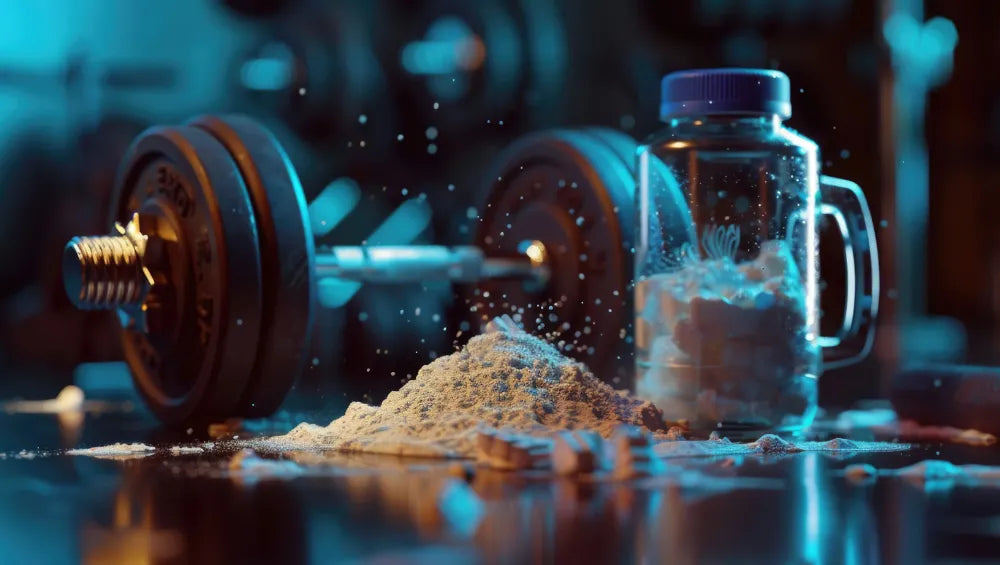Glutathione, a tripeptide consisting of three amino acids (glycine, cysteine, and glutamic acid ), is a fundamental building block for many biological functions in the human body . Synthesized primarily by the liver, it is present in almost every cell in the body, playing a vital role as an antioxidant, detoxifier, and immune system regulator.
Let’s discover the benefits of this exceptional molecule and how it can support the performance and well-being of athletes.
A powerful antioxidant
Glutathione is recognized as one of the most powerful antioxidants produced by our body. Antioxidants are essential for neutralizing free radicals , unstable molecules generated by various factors such as pollution, tobacco, an unbalanced diet, and intense physical exercise. An excess of free radicals can cause oxidative stress , contributing to premature aging of cells and decreased physical performance.
Glutathione, in its reduced form (GSH), acts as an electron donor to neutralize free radicals , thus protecting cells from oxidative stress . This action helps maintain cellular health and optimize recovery after intense training sessions. Athletes, in particular, can benefit from optimal glutathione levels to support their performance and endurance.
Protection against inflammation
Oxidative stress often leads to chronic inflammation, which can manifest as increased fatigue, body aches, and slower recovery. Glutathione reduces oxidative stress , helping to decrease inflammation in the body.
By neutralizing free radicals , glutathione helps prevent excessive inflammatory reactions that can occur after intense workouts.
Detoxification of the body
Glutathione is essential for the body's detoxification process. It binds to toxins and heavy metals , such as mercury, lead, and cadmium, present in the body. This binding transforms these harmful substances into water-soluble compounds, allowing their efficient elimination by the liver and kidneys. This mechanism is especially important for athletes, who may be exposed to high levels of environmental pollutants and chemicals, often found in certain dietary supplements.
Detoxification with glutathione helps maintain a healthy and functional body system. By removing toxins, glutathione protects cells from damage and prevents the accumulation of harmful substances. This is essential for athletes, whose bodies are often put under strain by intensive and frequent training. A clean cellular environment promotes performance, reduces fatigue, and optimizes recovery after exercise.
Additionally, by supporting liver function, glutathione helps regenerate the body's natural defenses. The liver is known to be the primary organ of detoxification, and glutathione, being present in large quantities in the liver, plays a key role in this process. When the liver is overworked, for example by excessive alcohol or medication consumption, glutathione levels can decrease. Glutathione supplementation is then beneficial for restoring its levels and supporting the liver's detoxifying function.
Improved immune functions
The immune system is the body's first line of defense against infection and disease. Glutathione plays a vital role in supporting and modulating immune function. By promoting the production and proliferation of immune cells, such as lymphocytes and macrophages, glutathione helps strengthen the body's defenses.
Adequate glutathione levels are crucial for maintaining a robust immune system . Athletes, in particular, benefit from a strong immune system to protect themselves against frequent infections and recover more quickly after injuries or intensive training. Glutathione also supports the function of natural killer cells, which play an important role in detecting and eliminating virus-infected or abnormal cells, thus helping to prevent infections.
Additionally, glutathione helps regulate inflammation, a key immune process. By reducing oxidative stress , it helps prevent excessive inflammation, which can damage tissues and slow recovery. For athletes, this means less muscle soreness after training, faster recovery, and better overall performance.
Benefits for the skin
Glutathione is widely recognized for its skin health benefits. In addition to its powerful antioxidant properties, glutathione has anti-melanogenic properties. This means it can help reduce the production of melanin, the pigment responsible for skin color. By inhibiting melanogenesis, glutathione can contribute to a brighter, more even complexion, reducing dark spots and uneven pigmentation.
For athletes, maintaining healthy skin is essential, as they are often exposed to external aggressors such as UV rays, pollution, and excessive sweat. Glutathione helps protect the skin from UV damage by neutralizing free radicals generated by sun exposure. This reduces the risk of premature aging and skin damage, allowing athletes to maintain healthy and resilient skin.
Additionally, glutathione promotes cell renewal, helping to repair and regenerate the skin. This is particularly beneficial for athletes, whose skin can suffer irritation and micro-injuries due to repeated friction and extreme environmental conditions. By supporting the skin's healing process, glutathione helps maintain a strong and effective skin barrier, essential for protecting against infection and inflammation.
Optimization of energy production
Mitochondria, often described as the powerhouses of cells, play a crucial role in energy production. Glutathione is essential for the proper functioning of mitochondria, as it helps protect them from oxidative damage. By neutralizing free radicals and reducing oxidative stress , glutathione preserves the integrity and function of mitochondria, ensuring efficient energy production.
For athletes, optimal energy production means better endurance and improved performance. Muscles, which rely heavily on mitochondrial energy, can function more efficiently during training and competition. Glutathione helps maintain stable energy levels, reducing fatigue and improving recovery after exercise.
By protecting mitochondria, glutathione also helps regulate cellular metabolism. This means cells can metabolize nutrients more efficiently, converting carbohydrates, fats, and proteins into usable energy. For athletes, this translates into better utilization of energy stores, reduced accumulation of metabolic waste, and an increased ability to sustain intense physical exertion for longer periods.
Glutathione supplementation
With age, glutathione levels in the body can decline, reducing its protective benefits. To maintain optimal glutathione levels, supplementation may be necessary, especially for athletes under significant physical stress.
Taking a glutathione health supplement is possible in various forms, such as capsules, tablets, and powders.
Glutathione supplementation
Recommended dosage
Glutathione dosage varies depending on individual needs and goals. For athletes, a typical dose is 150 to 300 mg per day, divided into one or two doses.
It is important to follow specific product recommendations and consult a healthcare professional before starting any new supplementation.
Practical use
The liposomal form of glutathione is often recommended for its better absorption and bioavailability.
This type of supplement allows for more efficient absorption by the body, ensuring that glutathione reaches the cells where it is most needed. It is recommended to take glutathione with meals to optimize its absorption.
Precautions
Although glutathione is generally well tolerated, it is important to follow recommended doses and consult a healthcare professional before starting supplementation, especially if you are taking other medications.
A glutathione immune defense dietary supplement is also not recommended for children, pregnant or breastfeeding women.
Glutathione is an essential antioxidant for the health and performance of athletes. Its protective properties against oxidative stress , inflammation and toxins, as well as its beneficial effects on the skin, immune system and energy production, make it a valuable ally for those looking to optimize their well-being and physical performance.
By incorporating food sources rich in glutathione and considering appropriate supplementation, you can take full advantage of this powerful antioxidant to achieve your health and performance goals.
Sources:
- Desideri E, Ciccarone F, Ciriolo MR. “Targeting Glutathione Metabolism: Partner in Crime in Anticancer Therapy.” Nutrients. 2019 Aug 16;11(8):1926. doi:10.3390/nu11081926. PMID: 31426306; PMCID: PMC6724225. : https://pubmed.ncbi.nlm.nih.gov/31426306/
- Diaz-Vivancos P, de Simone A, Kiddle G, Foyer CH. “Glutathione–linking cell proliferation to oxidative stress.” Free Radic Biol Med. 2015 Dec;89:1154-64. doi: 10.1016/j.freeradbiomed.2015.09.023. Epub 2015 Nov 3. PMID: 26546102 .: https://pubmed.ncbi.nlm.nih.gov/26546102/
- Pizzorno J. “Glutathione!” Integra Med (Encinitas). 2014 Feb;13(1):8-12. PMID: 26770075; PMCID: PMC4684116. : https://pubmed.ncbi.nlm.nih.gov/26770075/
- Coqueiro AY, Rogero MM, Tirapegui J. “Glutamine as an Anti-Fatigue Amino Acid in Sports Nutrition.” Nutrients. 2019 Apr 17;11(4):863. : https://pubmed.ncbi.nlm.nih.gov/30999561/
- Demling HR. “Nutrition, anabolism, and the wound healing process: an overview.” Eplasty . 2009;9 : https://pubmed.ncbi.nlm.nih.gov/19274069/
- Kim H. “Glutamine as an immunonutrient.” Yonsei Med J. 2011 Nov;52(6):892-7. : https://pubmed.ncbi.nlm.nih.gov/22028151/








